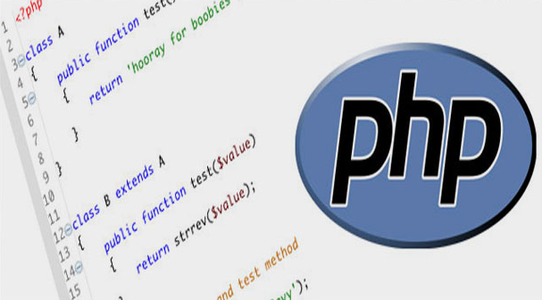
Definition and usage The PHP extract() function imports variables from an array into the current symbol table. For each element in the array, the key name is used for the variable name and the key value is used for the variable value. The second parameter type is used to specify how the extract() function treats such conflicts when a variable already exists and there is an element with the same name in the array. This function returns the number of variables successfully set. Syntax extract(array,extract_rules,prefix) Parameter Description array Required. Specifies the input to use. extract_rules Optional. The extract() function will check whether each key name is a legal variable name, and also checks whether it conflicts with the variable name in the symbol table. The handling of illegal, numeric, and conflicting key names will be determined based on this parameter. Can be one of the following values: Possible values: EXTR_OVERWRITE - Default. If there is a conflict, existing variables are overwritten. EXTR_SKIP - If there is a conflict, the 10 content recommendations of
1. extract() will not be covered

Introduction: Definition and Usage The PHP extract() function imports variables from an array into the current symbol table. For each element in the array, the key name is used for the variable name and the key value is used for the variable value. The second parameter type is used to specify how the extract() function treats such conflicts when a variable already exists and there is an element with the same name in the array. This function returns the number of variables successfully set. Syntax extract(array,extract_rules,prefix) Parameter description array ...

#Introduction: Definition and Usage The PHP extract() function imports variables from an array into the current symbol table. For each element in the array, the key is used for the variable name and the key value is used for the variable value. The second parameter type is used to specify how the extract() function treats such conflicts when a variable already exists and there is an element with the same name in the array. This function returns the number of successfully set variables. Syntax extract(array,extract_rules,prefix) Parameter description...

Introduction: Definition and Usage The PHP extract() function imports variables from an array into the current symbol table. For each element in the array, the key is used for the variable name and the key value is used for the variable value. The second parameter type ...
4. The wonderful use of extract function in PHP bilberryextract vanilla extract regexp extract
Introduction: extract: The wonderful use of the extract function in PHP: PHP's extract() function, its main function is to expand the array, the key name is used as the variable name, and the element value is the variable value. It can be said that it provides another method for the operation of the array. Convenient tools, for example, can easily extract POST or _GET elements. The content submitted in the form must be assigned values one by one
5. extractdata PHP extract function that splits an array into multiple variables
Introduction: extractdata:extractdata PHP extract Function that splits an array into multiple variables: extract() function syntax: int extract( array $var_array [, int $extract_type = EXTR_OVERWRITE [, string $prefix ]] ) Function: The extract() function extracts each pair of key and value from an associative array (not valid for numeric index arrays), and generates multiple sets of new variables with key as the variable name and value as the corresponding value. Copy the code as follows:
##6. PHP extract() function usage example
Introduction: PHP extract() function usage examples
7. PHP extract() function (array splitting) definition and usage
Introduction: Definition and usage of PHP extract() function (array splitting)
8. PHP extract() function usage php array splitting
Introduction: PHP extract() function usage php array splitting
9. PHP extract splits the array into multiple Function of variables_PHP tutorial
Introduction: PHP extract function that splits an array into multiple variables. extract() function syntax: int extract( array $var_array [, int $extract_type = EXTR_OVERWRITE [, string $prefix ]] ) Function: extract() function extracts associative arrays (nothing for numeric index arrays
10. Analysis of the wonderful uses of the extract() function in PHP_PHP tutorial
##Introduction: Analysis of the wonderful uses of the extract() function in PHP. When I was looking at the code of an awesome person, I saw a very useful function: extract(). Its main function is to expand the array, with the key name as the variable name and the element value as the variable value. It can be said that
[Related Q&A recommendations]:
python - scrapy xpath question
python - scrapy How to crawl the thunder in the web page Link?
python - When extract() is used for xpath analysis, several situations are a bit unclear.
python - Fetched Unicode encoding to urlcode
Using the css selector in python's scrapy framework to obtain the element content
The above is the detailed content of 10 recommended articles about extract(). For more information, please follow other related articles on the PHP Chinese website!




